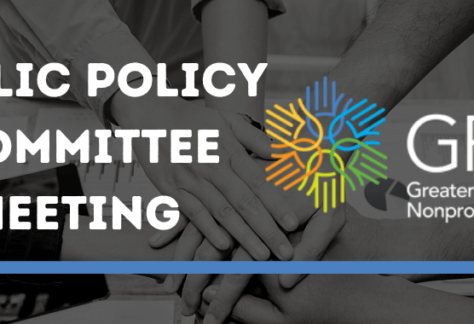Another year is in the books. 2020 will forever stand out as a year that brought many unexpected challenges and opportunities to the forefront of our consciousness. Collectively, we have all been impacted — physically, emotionally, socially or professionally. The nonprofit sector is no exception; budget cuts, layoffs and furloughs, among steadily growing community needs, were juxtaposed with opportunities for conversations around diversity and equity, our systems’ efficacy and a renewed commitment to our core work as nonprofits. COVID-19 demonstrated that nonprofits matter deeply. And yet, ever-present roadblocks remain. How we resolve these issues in the 21st century cannot be based on working hard. It has to be resolved by investing in people.
Since March 2020, our organization has operated with all hands on deck at all times. Like so many of you, not only have we pivoted our program offerings to online models, but we have also increased our capacity and engagement dramatically. This work is underlined by the collective acknowledgment of the team that change is uncomfortable, gritty, and not easily achieved. And, if not us, then who? Our goal is to be proactive rather than reactive, and luckily, we have a guide. Critical flashpoints for humanity — growing income inequalities, the need to address climate change by 2030, the 2045 minority-to-majority population shift in the United States, and the move from suburbs to urban centers by 2050 — combined with the United Nations’ Sustainable Development Goals provide the blueprint for healthy communities.
One important factor is an increased focus on ecosystem development (a fundamental shift and reorientation of relationships between people, places and institutions) as we shift away from systems change (fundamental changes in relationships, practices, values and power structures that govern our world). The difference lies in human optimization and the cultivation of community alliances.
Ecosystem development meets people where they are, relying on the development of skills and technical abilities. Ecosystem development strengthens the capacity of people to succeed in the places they live and work, and in collaboration with the institutions they partner with. Alternatively, systems change optimizes the ability to increase the efficiency of a system in a manner that promotes scaling. The result is typically an increase in the bottom line.
Here’s one example. A couple of years ago, we restructured our grantmaking program to promote more collaboration among nonprofits in Western Pennsylvania. By optimizing systems change, we positively impacted the bottom line. But people — nonprofit leaders and the communities they serve — were still vulnerable. People adhere and adapt to systems, and those systems can exploit, mute and forget them. One misconception regarding systems change is that a system can be performing well while the people in it are suffering. The system can perpetuate a false positive, blinding us to the fact that leaders are not solving problems any more than they are enhancing the system’s ability to optimize itself.
As leaders, we all need to go beyond systems change so that people can grow iteratively as a result of the change process. We recommend following Albert Einstein’s notion that you cannot solve a problem with the same energy that created it.
The coronavirus revealed deep wounds in our society (especially around racial equity) that have been present for generations. The work of healing requires compassion and a commitment to build upon concrete action that leads to ecosystem development. Part of what this work requires is transparency — about our mistakes, the hard work required to reach our goals and the state of our community. Philanthropy leaders have a tremendous responsibility to harness compassion and translate it into an equitable future for all. But until that day, we must let compassion guide us in enacting substantial change that does not wait for the accolades but rolls up its sleeves and models a new form of philanthropy. The key is to not allow our compassion to flag or our strength to give out. We must endure and lead by example.
Fred Brown, President & CEO – The Forbes Funds.
Initially published in the Pittsburgh Business Times Leadership Trust.



Thank you for the clear definitions of system change and ecosystem development, and the difference between the two. This was insightful, and I will do my best to demonstrate the behavior and engagement we seek as we propel the mission forward. Thank you for your continued inspiration and support, Fred Brown, and for being a truly advanced leader.